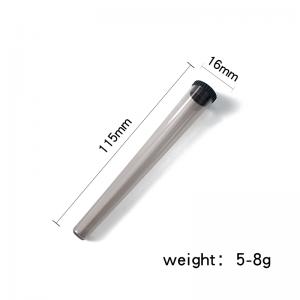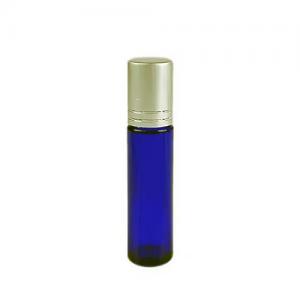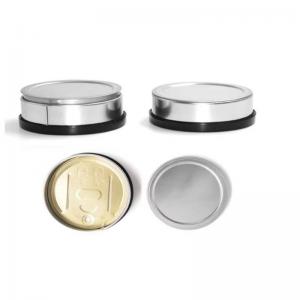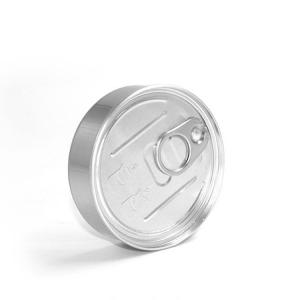The German Federal Government recently made the controversial choice to decriminalize the possession and purchase of small amounts of cannabis. If the draft bill is approved by the German legislature, the "Cannabis Act" will be implemented next year. Many believe this move has been long overdue, while others have been wary of the health risks associated with smoking marijuana.
An international team of researchers has elucidated the mode of action of cannabinoids in inflammation. Researchers at the Jena Institute of Pharmacy studied the anti-inflammatory effects of cannabinoids, specifically cannabidiol (CBD). They found that cannabidiol activates an enzyme that causes inflammation to subside and believe these findings could lead to new treatments for inflammatory diseases. In a recent study published in the journal Cell Chemical Biology, researchers from the University of Jena and their colleagues took a different look at cannabis, a traditionally medicinal plant. The team from the Institute of Pharmaceutical Sciences investigated how certain components of the cannabis plant fight inflammation. Previous studies have shown that marijuana not only has analgesic and antispasmodic effects, but also anti-inflammatory effects. Dr. Paul Mike Jordan, who co-led the study with Prof. Oliver Welz, said, "However, the reason for this anti-inflammatory effect has been largely unknown until now."
 Dr. Paul Mike Jordan (left) and Lukas K. Peltner (right) study the effects of cannabinoids on the human body. Image credit: Anna KönigThe researchers studied how different cannabinoids, including the psychoactive THC (tetrahydrocannabinol) and CBD (cannabidiol), which are now available in free products, act on human immune cells." We found that all eight cannabinoids we studied had anti-inflammatory effects," said Lukas Peltner, first author of the study and a PhD student." We found that all of the compounds we studied inhibited the formation of pro-inflammatory messenger substances in cells while enhancing the formation of anti-inflammatory substances." CBD induces conversion of immune cells The research team examined its mode of action in more detail. The researchers were able to determine that CBD was able to activate 15 lipoxygenase-1, which triggered the production of inflammatory dissolving messenger substances, which in turn led to a reduction in inflammation. Dr. Jordan explains, "Thus, CBD induces a switch in the affected cells that can be said to direct the inflammatory process from the promoting side to the inhibiting side. The researchers also confirmed these results obtained in cell cultures in animal experiments in mice." In the long run, the insights gained could lead to new therapeutic strategies for treating inflammatory diseases, the researchers concluded. The focus should be on CBD, which was the most potent cannabinoid studied. Dr. Jordan noted that previously approved cannabinoid preparations contain CBD, "but also contain psychoactive tetrahydrocannabinol, which can have a variety of side effects. Therapeutic agents containing only CBD will reduce this problem." (Source: cnBeta)
Dr. Paul Mike Jordan (left) and Lukas K. Peltner (right) study the effects of cannabinoids on the human body. Image credit: Anna KönigThe researchers studied how different cannabinoids, including the psychoactive THC (tetrahydrocannabinol) and CBD (cannabidiol), which are now available in free products, act on human immune cells." We found that all eight cannabinoids we studied had anti-inflammatory effects," said Lukas Peltner, first author of the study and a PhD student." We found that all of the compounds we studied inhibited the formation of pro-inflammatory messenger substances in cells while enhancing the formation of anti-inflammatory substances." CBD induces conversion of immune cells The research team examined its mode of action in more detail. The researchers were able to determine that CBD was able to activate 15 lipoxygenase-1, which triggered the production of inflammatory dissolving messenger substances, which in turn led to a reduction in inflammation. Dr. Jordan explains, "Thus, CBD induces a switch in the affected cells that can be said to direct the inflammatory process from the promoting side to the inhibiting side. The researchers also confirmed these results obtained in cell cultures in animal experiments in mice." In the long run, the insights gained could lead to new therapeutic strategies for treating inflammatory diseases, the researchers concluded. The focus should be on CBD, which was the most potent cannabinoid studied. Dr. Jordan noted that previously approved cannabinoid preparations contain CBD, "but also contain psychoactive tetrahydrocannabinol, which can have a variety of side effects. Therapeutic agents containing only CBD will reduce this problem." (Source: cnBeta)


 English
English français
français Deutsch
Deutsch русский
русский italiano
italiano español
español português
português Nederlands
Nederlands 日本語
日本語 한국의
한국의











 2023-09-27
2023-09-27 Dr. Paul Mike Jordan (left) and Lukas K. Peltner (right) study the effects of cannabinoids on the human body. Image credit: Anna KönigThe researchers studied how different cannabinoids, including the psychoactive THC (tetrahydrocannabinol) and CBD (cannabidiol), which are now available in free products, act on human immune cells." We found that all eight cannabinoids we studied had anti-inflammatory effects," said Lukas Peltner, first author of the study and a PhD student." We found that all of the compounds we studied inhibited the formation of pro-inflammatory messenger substances in cells while enhancing the formation of anti-inflammatory substances." CBD induces conversion of immune cells The research team examined its mode of action in more detail. The researchers were able to determine that CBD was able to activate 15 lipoxygenase-1, which triggered the production of inflammatory dissolving messenger substances, which in turn led to a reduction in inflammation. Dr. Jordan explains, "Thus, CBD induces a switch in the affected cells that can be said to direct the inflammatory process from the promoting side to the inhibiting side. The researchers also confirmed these results obtained in cell cultures in animal experiments in mice." In the long run, the insights gained could lead to new therapeutic strategies for treating inflammatory diseases, the researchers concluded. The focus should be on CBD, which was the most potent cannabinoid studied. Dr. Jordan noted that previously approved cannabinoid preparations contain CBD, "but also contain psychoactive tetrahydrocannabinol, which can have a variety of side effects. Therapeutic agents containing only CBD will reduce this problem." (Source: cnBeta)
Dr. Paul Mike Jordan (left) and Lukas K. Peltner (right) study the effects of cannabinoids on the human body. Image credit: Anna KönigThe researchers studied how different cannabinoids, including the psychoactive THC (tetrahydrocannabinol) and CBD (cannabidiol), which are now available in free products, act on human immune cells." We found that all eight cannabinoids we studied had anti-inflammatory effects," said Lukas Peltner, first author of the study and a PhD student." We found that all of the compounds we studied inhibited the formation of pro-inflammatory messenger substances in cells while enhancing the formation of anti-inflammatory substances." CBD induces conversion of immune cells The research team examined its mode of action in more detail. The researchers were able to determine that CBD was able to activate 15 lipoxygenase-1, which triggered the production of inflammatory dissolving messenger substances, which in turn led to a reduction in inflammation. Dr. Jordan explains, "Thus, CBD induces a switch in the affected cells that can be said to direct the inflammatory process from the promoting side to the inhibiting side. The researchers also confirmed these results obtained in cell cultures in animal experiments in mice." In the long run, the insights gained could lead to new therapeutic strategies for treating inflammatory diseases, the researchers concluded. The focus should be on CBD, which was the most potent cannabinoid studied. Dr. Jordan noted that previously approved cannabinoid preparations contain CBD, "but also contain psychoactive tetrahydrocannabinol, which can have a variety of side effects. Therapeutic agents containing only CBD will reduce this problem." (Source: cnBeta)

 Online service
Online service +86 15375471059
+86 15375471059

